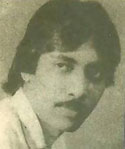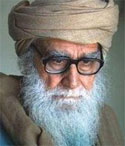
By S. Arshad, New Age Islam
22 April 2021
Wahiduddin Khan Promoted Pluralistic Spirit Of Islam And Was The First To Advise Muslims To Hand Over Babri Mosque To Hindus
Main Points
1. Maulana Wahiduddin Khan was one of the 500 most influencial Muslims of the world
2. He was awarded Padma Bhushan and Padma Vibhushan
3. He wrote 200 books an a commentary of the Quran
4. He was the first to advise Muslims to hand over Babri mosque to Hindus
-----

Maulana Wahiduddin Khan
------
Maulana Wahiduddin Khan is no more. We have lost one of the greatest exponents of Islam. With the news of his demise, I was carried back to the world of sweet memories of a short but informal meeting with him.
It was in July 2015 that I went to meet Maulana Wahiduddin Khan at his house in Nizamuddin in Delhi. For years before I had the desire to meet one of the greatest Islamic scholars of the contemporary world who had attracted the attention of the Muslim intelligentsia and the common Muslims alike with his simple diction and way of interpreting the message of Islam through his magazine Al Risala.
So it was my privilege to meet him on that memorable day. He sat on a chair in the balcony and rested his legs on a small stool kept before him. I sat on a chair on his left. Since I had not gone to interview him but it was only a courtesy call, our conversation only revolved round the current situation in the country and on the problems facing the Muslims. For most of the time I listened to him. He talked about his personal life and his approach towards bringing up children. He also talked about Urdu journalism and madrasas. So it was an informal meeting through which I came to know of his personal views on certain political and communal issues.
Maulana Wahiduddin Khan told me that he started his writing career with the mouthpiece of Jamiat-e-Ulema Hind, Al Jamiat. They had provided him with a room to live. He lived in the office of the periodical and worked for it. But after some time, the magazine terminated his service and so he had to leave the room provided by Jamiat. After that, he was literally on the roads.
About his attitude towards his children, he said that he never pampered his children because he believed that pampering children renders them mentally weak and dependent on the parents and the guardian. He said, "If my little son would sleep without eating and my wife would try to wake him up to feed him, I would say to her, "Leave him. Let him sleep. He wont die if he does not eat."(Nahi Khayga To Mar Nahi Jayega.) He also said that he used to travel to different countries of the world but he never brought any gifts for their children from there for the same reason. He always inculcated in them the feeling that they have to build their own career and life. The result was that all of them were well settled and successful in life.
Since Maulana Wahiduddin Khan started his career as a journalist, he observed Urdu journalism very closely and formed his own views on Urdu journalism. He was of the view that Urdu journalism only played with the emotions of Muslims and did not play a constructive role in the development of Muslims. He went on to say that the entire Urdu journalism was yellow journalism. This was the degree of his disillusionment with Urdu journalism.
He had his own views on madrasas. I will not quote here his sentence to avoid a controversy but he was not very appreciative of the role played by madrasas in the social and educational development of the community. He was of the opinion that madrasas could have played a greater role in educational, political and social emancipation of Muslims of India.
Though it was a short meeting, for me it was a memorable event. I got the opportunity to talk with one of the greatest Islamic scholars of our time and pick some gems from his treasure of knowledge and wisdom.
New Age Islam, Islam Online, Islamic Website, African Muslim News, Arab World News, South Asia News, Indian Muslim News, World Muslim News, Women in Islam, Islamic Feminism, Arab Women, Women In Arab, Islamophobia in America, Muslim Women in West, Islam Women and Feminism




 Moderate Islamist here
Moderate Islamist here


0 comments:
Post a Comment